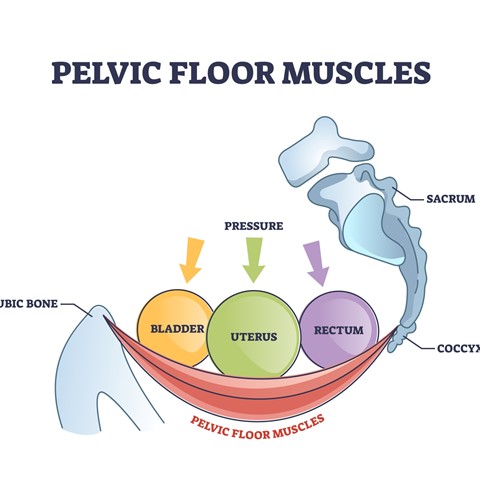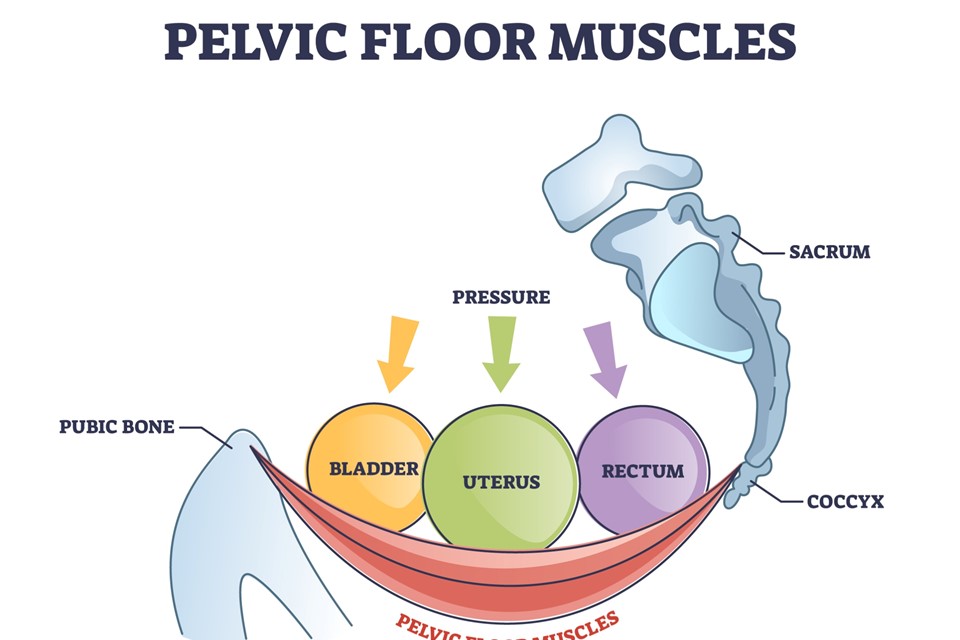Stress and Pelvic Floor Tension Explained

Friday, 3 February 2023

Life is full of stresses, and for many people, this can manifest in physical ways. Most of us will have, at some point, experienced tension headaches and muscle aches. These issues are quite normal and, more often than not, eased by painkillers or massage.
What is probably not widely known is how stress can affect the pelvic floor. But considering the importance of the group of muscles which comprise the pelvic floor and the fact that they are vital for normal urine and bowel function, along with the part they play in ensuring the reproductive organs stay firmly in place, it should not be so surprising that it is possible to make a connection between stress and pelvic floor tension.
How Stress Affects the Pelvic Floor
If you’re experiencing pain in the pelvic region you may not realise that this is due to the pelvic stress reflex response during which the muscles of the pelvic floor contract in response to physical or mental stress. Imagine when you are frightened or worried; you hold your breath and involuntarily tighten your abdominal muscles.
The muscular structures which control the opening and closing of the bladder, plus the flow of urine, are affected by physical stress, and the contraction of these sphincter muscles can increase or weaken the pelvic floor muscles.
The stress hormone cortisol can also affect the pelvic floor. High levels of cortisol are released when the body is under stress. When constant stress leads to a constant release of cortisol, levels can then start to deplete, which can cause a number of pelvic pain issues, including cystitis, endometriosis and vaginal yeast infection.
In some people, constant stress can lead to a condition called Non-relaxing Pelvic Floor Dysfunction (NPFD), which can present as pain, sexual dysfunction and problems with urination and defecation. It can be difficult for medics to ascertain this condition because the symptoms can be vague and non-specific, even whilst negatively impacting the quality of life, as research has shown. Stress management techniques may be employed rather than any physical treatment.
Recognising the Signs of Pelvic Floor Tension
Because we all cope with stress differently, symptoms can vary from person to person, but the most common symptoms include:
· Urinary and/or faecal incontinence
· Pain in the pelvic region
· Pain during sex
· Abdominal pain
Treatment Options
Stress and pelvic floor tension, once identified as a problem, can be treated where necessary. Physiotherapy and psychotherapy, or a combination of these two, can help to increase cortisol levels in women with chronic pelvic pain. Physiotherapy can help in one of two ways; where the pelvic muscles are weak, exercises can be given to help strengthen the pelvic floor or where the muscles are too tight, a physiotherapist can perform exercises to release the pelvic floor muscles and relieve tension.
In many cases, relaxation and mindfulness techniques can be taught to help increase awareness of the pelvic floor, recognise when tension is building and how it can cause or worsen pain and how to recognise the stressors which lead to this situation.
One of the easiest and most effective ways to manage stress and pelvic floor tension is through deep breathing exercises. This can be done anywhere at any time as long as you can make yourself comfortable in a place where you won’t be disturbed. With loosened clothing, breathe in through your nose for a count of four, taking the breath right down to the abdomen; hold it for a count of four, then breathe out through the mouth for a count of four. As you progress, you’ll be able to count higher.
Do this exercise often for at least five minutes, and soon, you’ll be able to control your stress at will and, at the same time, reduce pelvic muscle tension. Alternatively, if you feel that you need to have a surgical appraisal, Mr Broome is highly experienced in helping ladies with pelvic floor problems. More can be found about him at The Pelvic Clinic.

